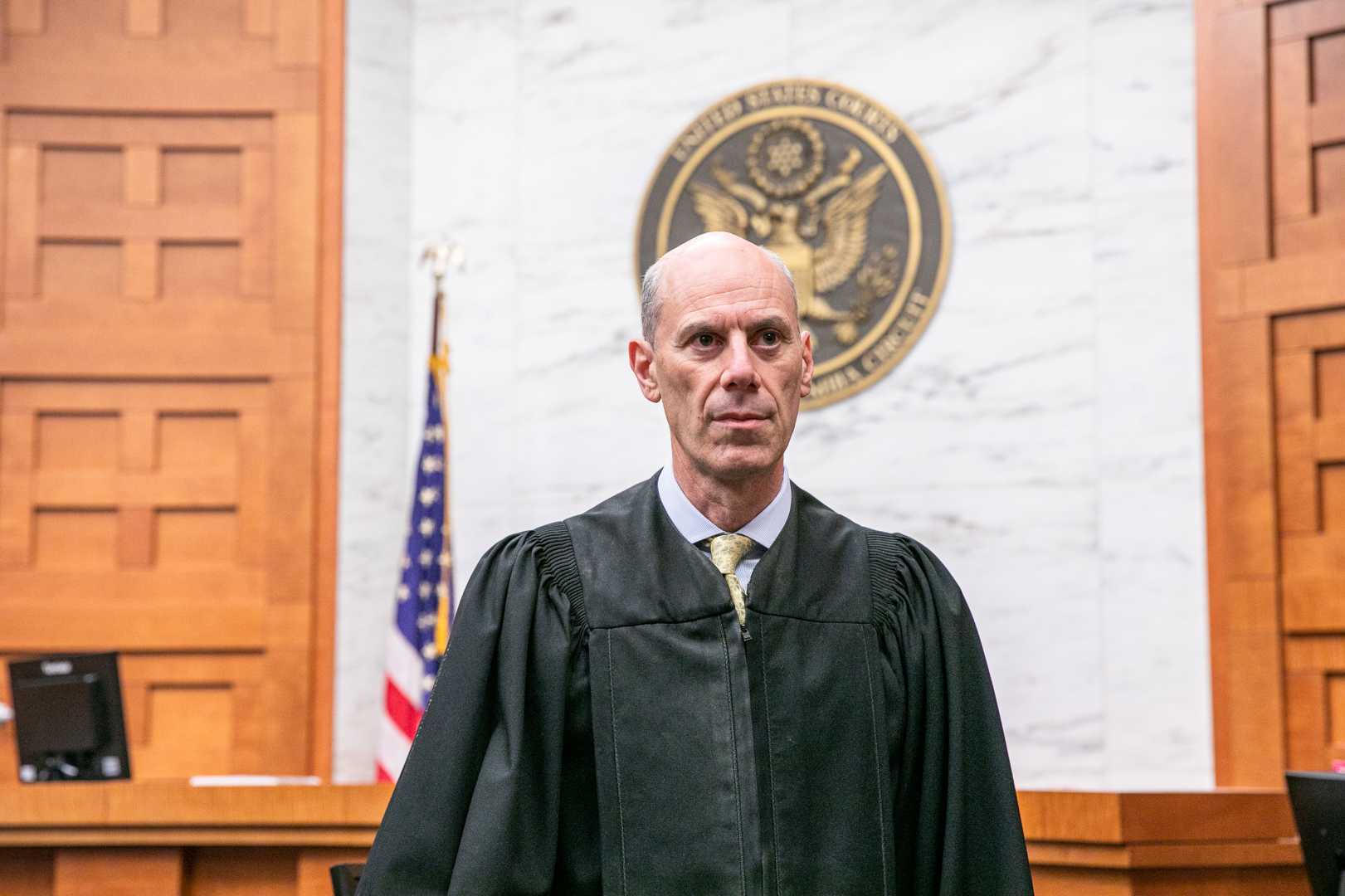Politics
Judge Finds Trump Administration in Contempt Over Deportation Flights

WASHINGTON — U.S. District Judge James Boasberg ruled Wednesday that there is probable cause to hold Trump administration officials in criminal contempt for violating a court order regarding deportation flights of alleged Venezuelan gang members to El Salvador. The ruling marks a significant moment in the ongoing legal battles surrounding the administration’s immigration policies.
In a detailed opinion, Boasberg stated that the government displayed a “willful disregard” for his March order, which mandated a halt to deportation flights. His decision comes as the Trump administration grapples with legal challenges related to its deportation tactics.
On March 15, the day Boasberg issued his order, the administration was already in the process of sending three planes loaded with alleged members of the Tren de Aragua gang to a prison in El Salvador known for human rights abuses. Following an emergency hearing, Boasberg demanded that any planes in the air be turned around immediately, a directive the administration did not follow.
“The Court does not reach such conclusion lightly or hastily; indeed, it has given Defendants ample opportunity to rectify or explain their actions. None of their responses has been satisfactory,” Boasberg wrote in his opinion.
Legal analyst Steve Vladeck, a professor at Georgetown Law, described the finding as rare, saying, “Holding federal executive branch officials in criminal contempt is just about unheard of, once in a blue moon.” Vladeck noted the delicate balance Boasberg must maintain between enforcing the law and possibly provoking backlash from higher courts.
Skye Perryman, an attorney with Democracy Forward, expressed support for the ruling, stating it affirms the notion that the government’s actions are unlawful and pose a threat to constitutional rights. “This ruling affirms what we have long known: the government’s conduct in this case is unlawful and a threat to people and our constitution,” Perryman said.
The legal controversy intensified when the Supreme Court recently ruled that migrants challenging their deportation under the Alien Enemies Act had pursued their case in the wrong court. The Court indicated that they should navigate a complicated legal process known as habeas corpus, often requiring claims to be filed in conservative federal courts.
Despite the Supreme Court’s decision, Boasberg asserted that the principle of judicial orders needing compliance remains strong. “The Constitution does not tolerate willful disobedience of judicial orders—especially by officials of a coordinate branch who have sworn an oath to uphold it,” he remarked.
Following the ruling, Boasberg outlined the next steps. He requested sworn statements from individuals knowledgeable about the decision-making processes on March 15 regarding the flights. If these explanations were inadequate, he stated he would consider summoning live witnesses for further testimony.
Boasberg emphasized that the next stages could lead to formal prosecution of those involved in the contempt, either by the Justice Department or through the potential appointment of an independent prosecutor if the government fails to adhere to his directives by the specified deadline.
“If Defendants opt to purge their contempt, they shall file by April 23, 2025, a declaration explaining the steps they have taken and will take to do so,” Boasberg instructed.
The White House has not yet publicly responded to the judge’s ruling, marking yet another chapter in the ongoing scrutiny and litigation surrounding the Trump administration’s controversial immigration policy decisions.












